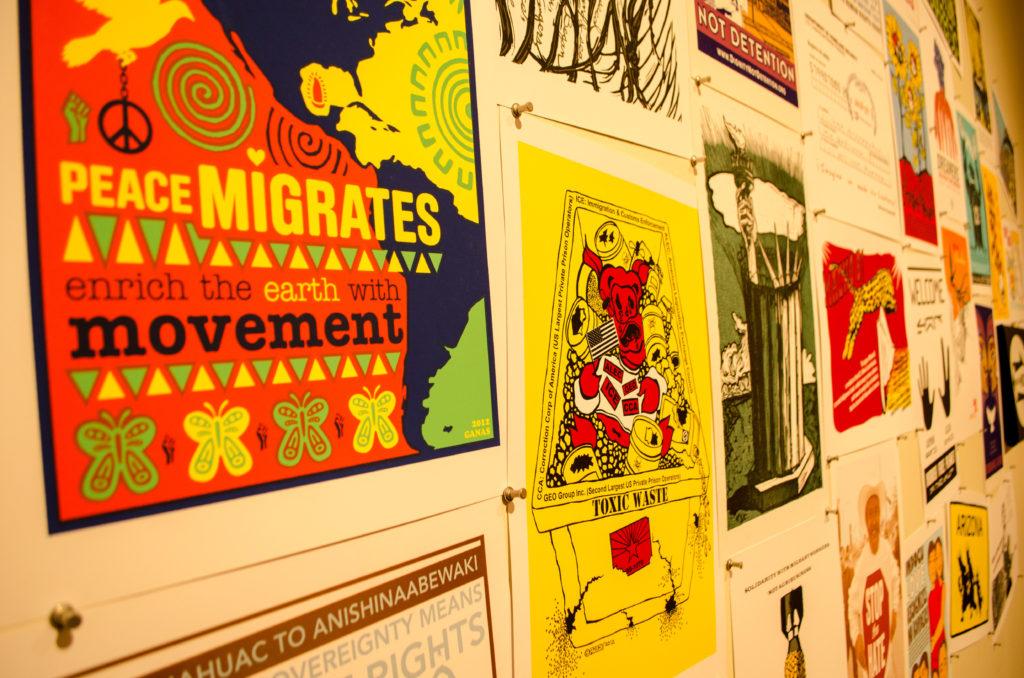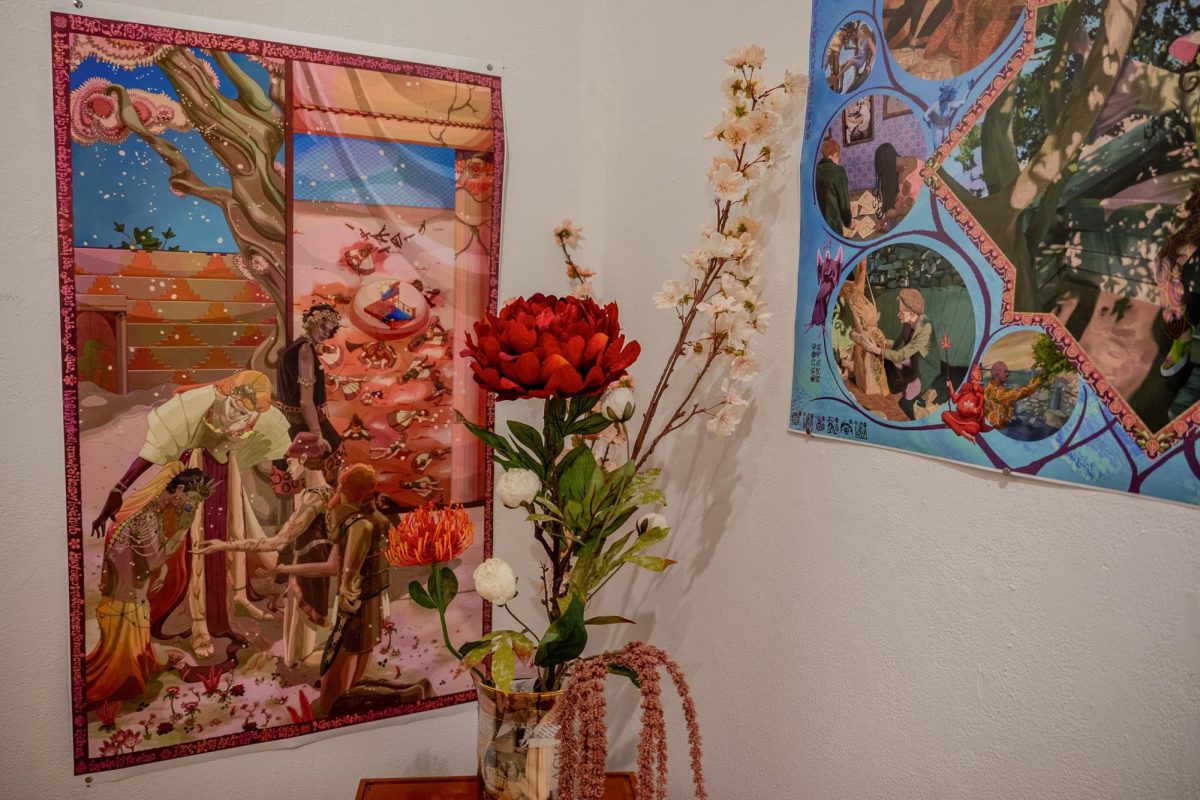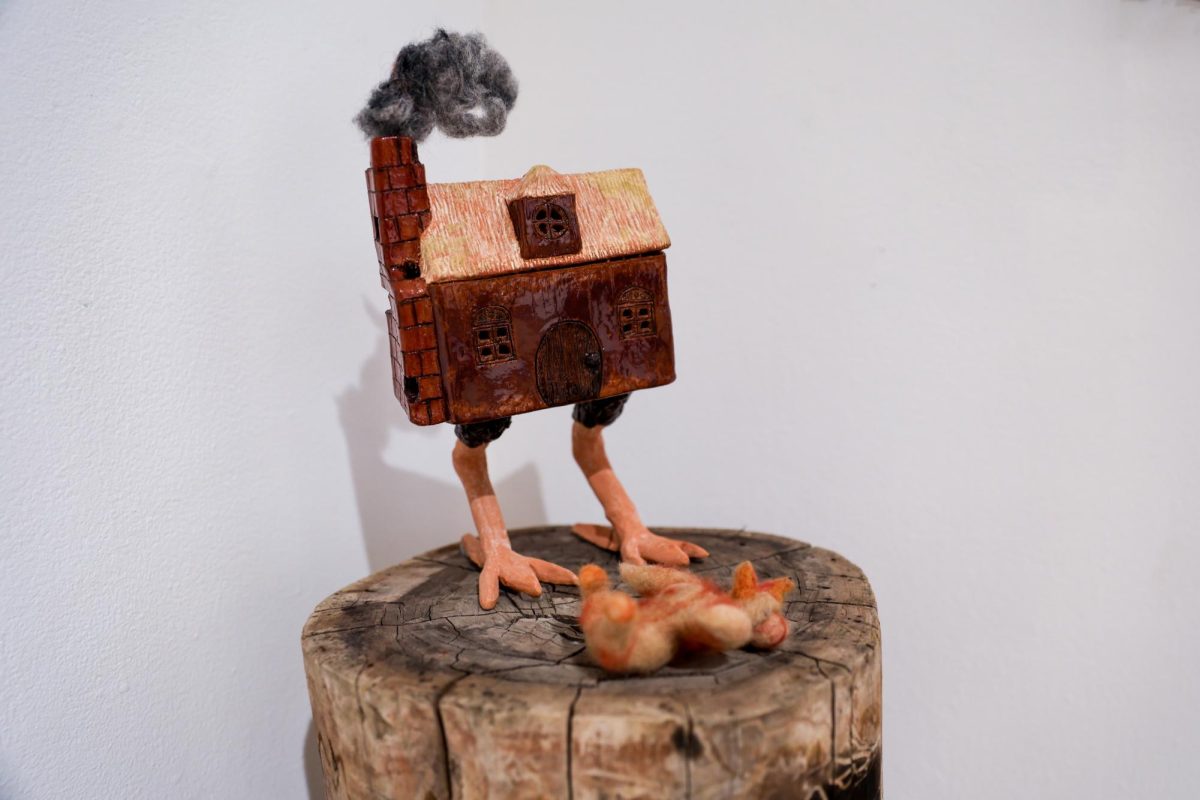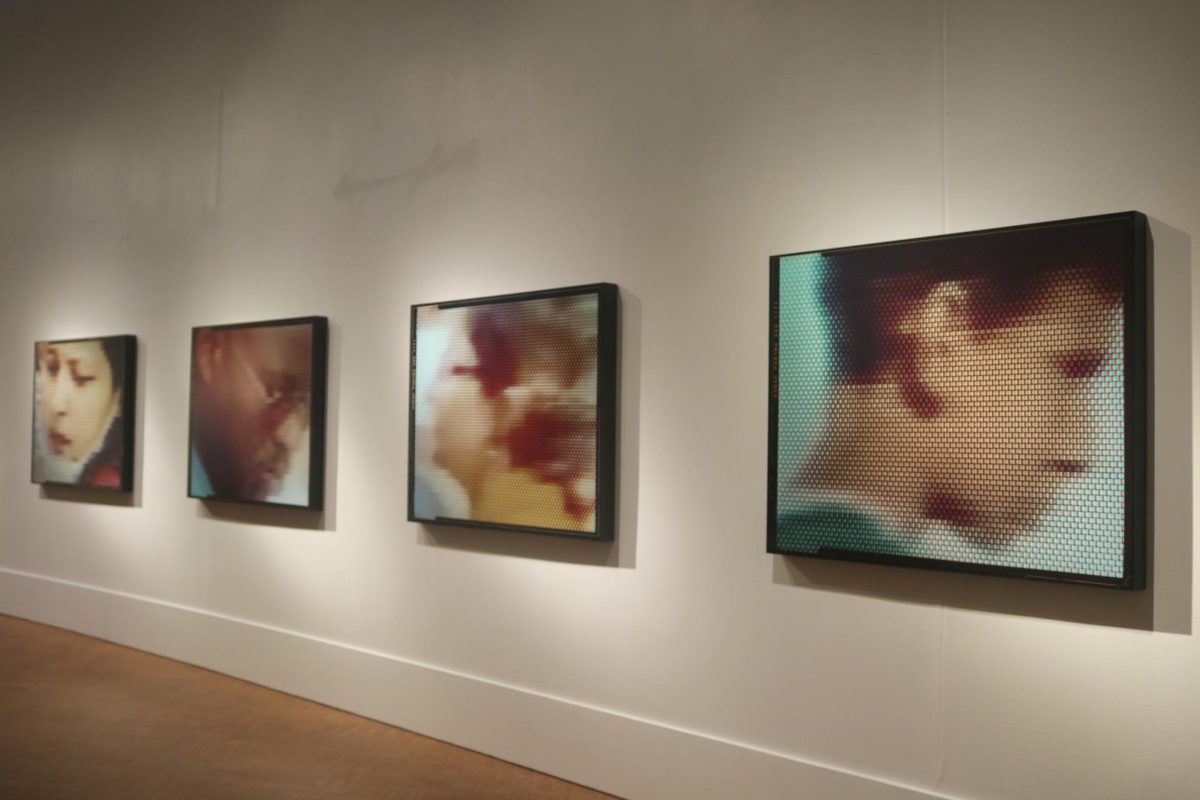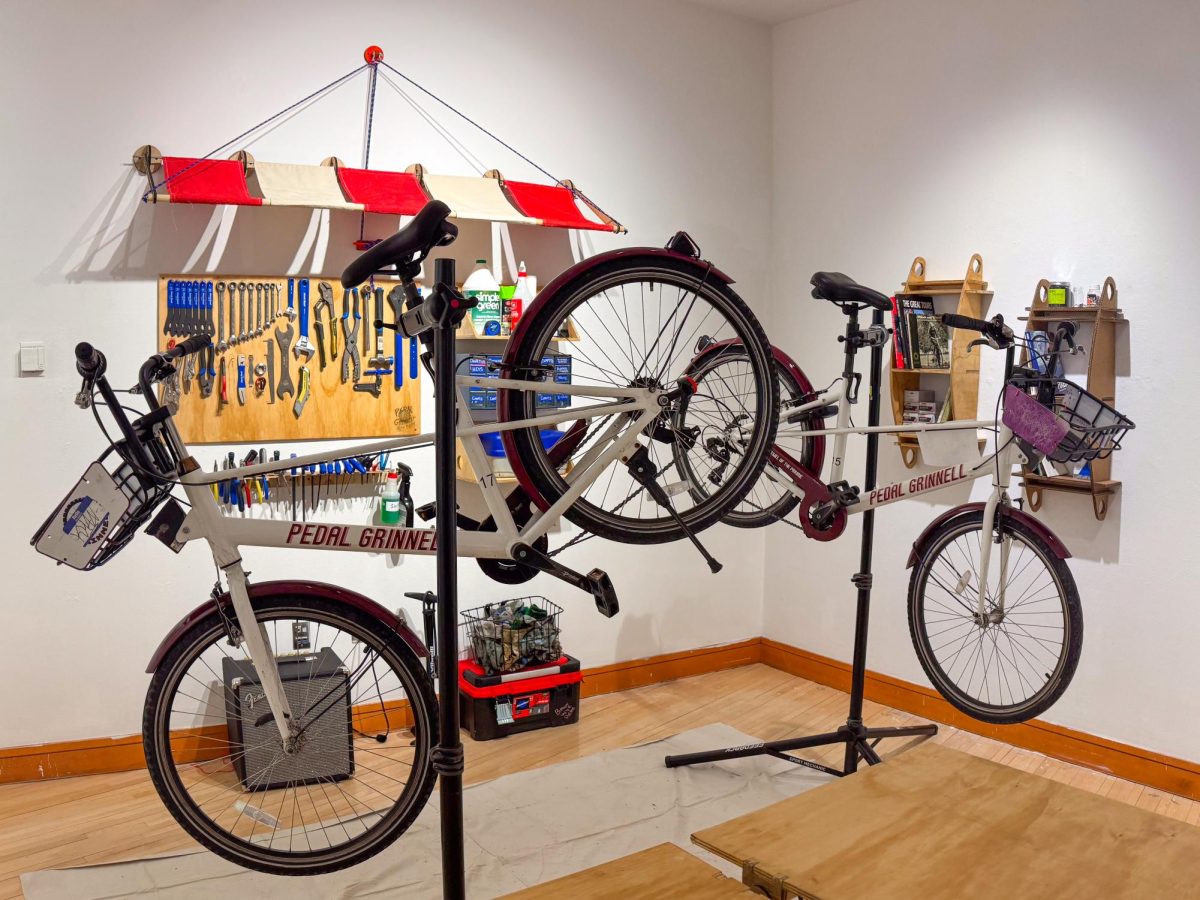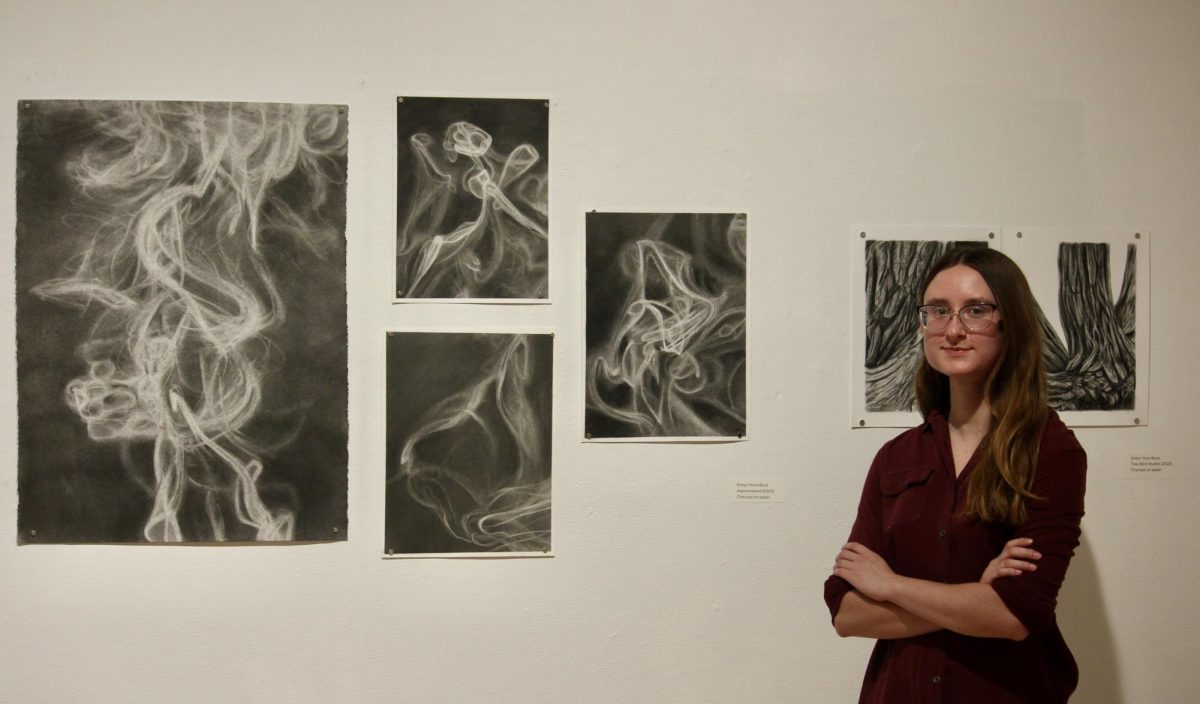Teresa Fleming
flemingt17@grinnell.edu
Last Thursday, Feb. 9, Edouard Duval-Carrie offered a timely meditation on global migration and revolution as seen through the lens of his diverse body of work. The Haitian-born artist and curator’s work is currently on display in Faulconer gallery and speaks to his experiences living and working in Haiti, Paris and Miami.
Duval-Carrie’s work takes on a myriad of forms, including paintings, multimedia pieces and installation work. He draws from his experience conducting archival research and tracking the human histories of material goods. Products like sugar and rum take on new meaning in Duval-Carrie’s work, situated within an economy fraught with human suffering.
“The Haitian Revolution was very particular, because it was a reaction against the French plantation system,” Duval-Carrie explained.
Duval-Carrie said a motif he returns to again and again in his work is an uprooted tree, its branches laden with history and its roots grasping towards a solid base. It’s an image he feels speaks to his identity as an immigrant and citizen of multiple nations. He shared several iterations of this concept rendered in fabric, metal, and paint.
“My school is more of a kitchen than an art studio, because I like experimenting,” he explained.
His work also draws on the traditions of Voodoo religion. He recounted visiting a temple in Haiti only to find on an altar a poster advertising his own exhibition of Voodoo-inspired works.
“I guess that’s how I know it resonated with people,” Duval-Carrie joked.
Ultimately, Duval-Carrie hopes to entrance the viewers of his work, drawing them into his worlds with lush colors and textures.
“It’s a bad word in art – seduction – but I’m not scared of it,” Duval-Carrie said.



















































